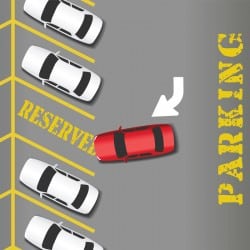Are you looking for answers to legal questions that arise in cause marketing and corporate partnerships? If so, look no further!
Last year, Selfishgiving.com founder and blogger Joe Waters and I distributed a five-question survey to businesses and nonprofits regularly engaged in cause marketing and corporate partnerships, asking them to share their top legal compliance questions and challenges. After reviewing the survey responses, we decided to create a series of blog posts to address the most common corporate partnership legal compliance questions covering four issue categories: (1) Advertising Disclosures; (2) Registration and Reporting Requirements; (3) Contracts; and (4) Unrelated Business Income Tax (UBIT). I hope you will find these FAQs useful in helping to navigate the legal and regulatory issues that arise as your company or charity engages in corporate partnerships.
Click on the FAQ headers below to read the answers to each question, which are posted on SelfishGiving.com, and sign up for Joe’s informative and entertaining weekly email newsletter, which has all the latest trends and strategic advice about cause marketing and corporate partnerships!
Part 1: Advertising Disclosures
- Are cause marketing advertising disclosure “best practices” required by law? Some of our corporate partners think they are just “suggestions.”
- What if a company insists on structuring a campaign where the donation is based on a percentage of its profits, rather than a percentage of the purchase price?
- Have any companies gotten into trouble with regulators for failing to include certain information in their cause marketing advertisements?
- Advertising disclosure problems only present a real legal risk to the corporate partner, not the charity, right?
- Can the company simply state on the hang-tag or store signage, “10% of the purchase price will be donated to ABC Charity, see www.company.com/ABCCharity for details,” and then include the website URL where the minimum guarantee and/or donation cap can be found?
Part 2: Registration and Reporting Requirements
- Our company is conducting its first ever cause marketing campaign. I heard that we may need to file state registrations. How do I know if I need to register, what does it entail, and how long will it take? Note: The answer to this includes a chart on the state registration and reporting requirements applicable to companies acting as commercial co-venturers.
- I operate a small e-commerce business in Massachusetts that sells clothing online, and would like to run a promotion in which the company will donate $5 to a local, nonprofit homeless shelter for every special edition T-shirt sold through our website. Does my company need to register nationally? What, if anything, does the nonprofit need to do? Note: The answer explains how to determine the parties’ fundraising compliance obligations specifically in the context of an online cause marketing promotion.
- Our company’s cause marketing campaign launched last week and we just found out we are supposed to register in certain states as a commercial co-venturer! Are we going to face fines or other penalties?
- Our charity was asked to be the beneficiary of a company’s charitable sales promotion, but we’ve never engaged in a cause marketing campaign before. What do we need to be aware of before we proceed with this opportunity?
- Our nonprofit is already registered nationally, and discloses all of its CCV partners as part of our annual charitable solicitation registration renewals, so we should be set with our CCV-related compliance, right? Note: The answer includes a chart on the state reporting requirements applicable to charities that have entered into a CCV agreement.
- Our charity was approached by a start-up company that wants to conduct a cause marketing campaign to benefit our organization. When we told them they may need to register with certain states and obtain bonds, they were concerned about the cost and burden of compliance. We don’t want to lose the opportunity to build a partnership with this company. What can we do?
- We are entering into a cause marketing promotion in which our charity will receive a portion of the proceeds from the sale of each Sellco product. SellCo sent us a draft contract to sign. It seems to describe the promotion the way we discussed it. Should we go ahead and sign it?
- What provisions should be included in our cause marketing agreement? Note: The answer includes a 15-point cause marketing contract checklist!
- Is there a way to streamline the preparation of cause marketing agreements so they are compliant with all 50 states’ laws as well as for online sales?
- Our corporate partner wants to enter into a multi-year relationship that includes a significant financial commitment, and will involve numerous customer activations. Only the details for the first activation have been solidified. How do we draft an agreement to cover this type of arrangement?
Part 4: Unrelated Business Income Tax (UBIT)
- My organization, Charity Corp., has a corporate partner, Cool Products Co., that is conducting a charitable sales promotion in which it will advertise that it is donating a portion of the purchase price from sales of a particular product to Charity Corp. Cool Products has asked to promote their sales campaign to our members and donors through email and social media. I heard that charities aren’t allowed to promote these types of campaigns because it might subject the charity to a tax called UBIT. What is UBIT, and why and when is it a potential problem? How do we avoid creating taxable income?
- How can our organization appropriately communicate about a corporate partnership to our donors/members/social followers without crossing the line into marketing for the corporate partner?
- The UBIT rules make our corporate partnerships team feel constrained in our partner cultivation strategy. What options does our organization have to provide value to our corporate partners?
- Karen l. Wuhttps://perlmanandperlman.com/author/144a895e365ae7a4/
- Karen l. Wuhttps://perlmanandperlman.com/author/144a895e365ae7a4/
- Karen l. Wuhttps://perlmanandperlman.com/author/144a895e365ae7a4/
- Karen l. Wuhttps://perlmanandperlman.com/author/144a895e365ae7a4/













